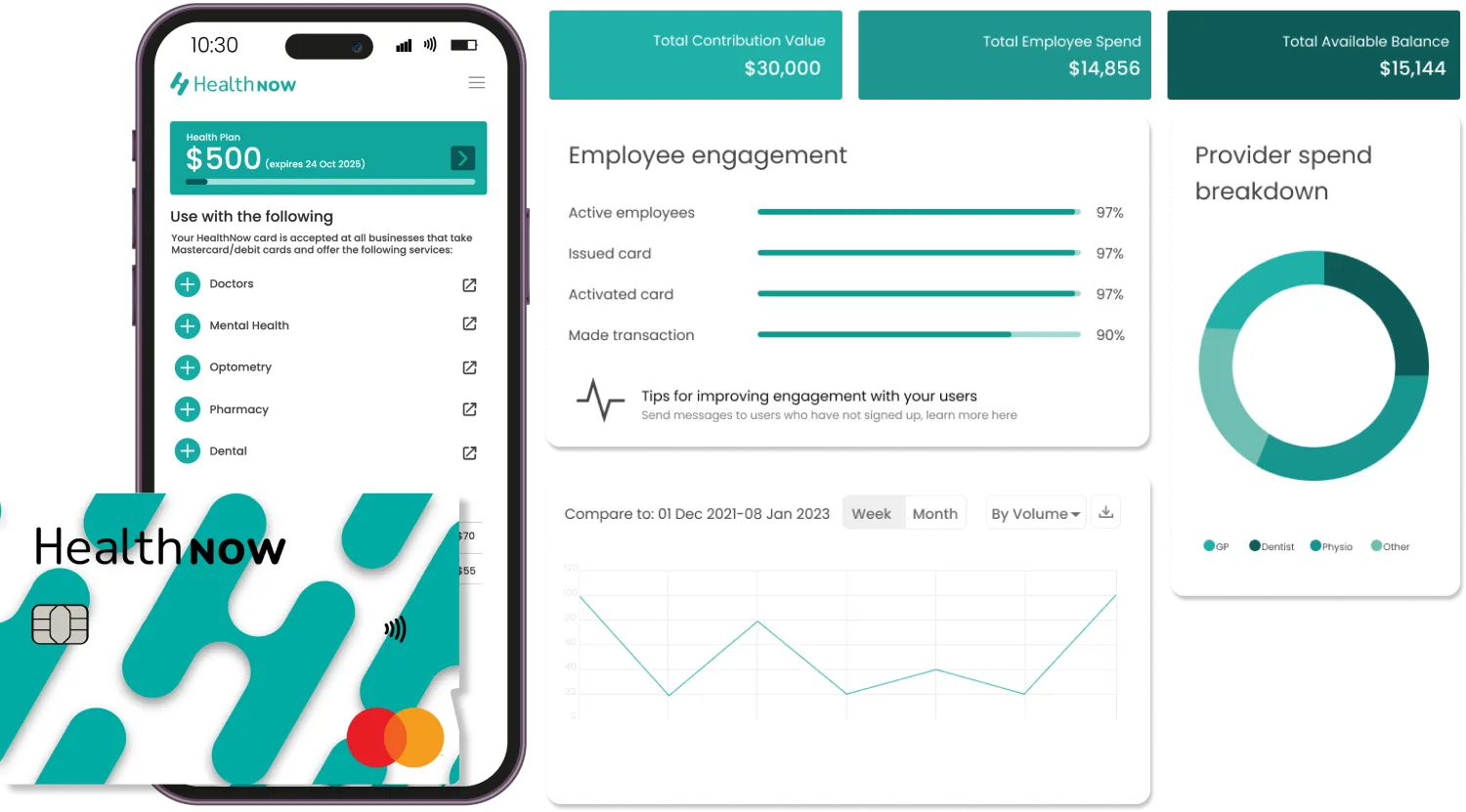A good cancellation policy shouldn’t just help cover your clinicians’ time for missed bookings when a patient fails to give reasonable notice and without a genuine reason. They should also set your patients and your clinic up for success so that the policy doesn’t need to be enforced in the first place. Here’s an overview of the importance of a good cancellation policy for healthcare clinics, as well as how you can help reduce the number of last-minute cancellations and no-show rates.
First: Why The Emphasis On My Cancellation Policy?
 Establishing a clear and cohesive policy ensures that patients understand the importance of the service that they are receiving, and sets clear rules for appointment scheduling. Without a cancellation policy, patients may not realise the impact of their actions on the clinic’s ability to provide timely care to other patients – and without this realisation, they may not think twice about skipping an appointment or rescheduling at the last minute ‘just because’.
Establishing a clear and cohesive policy ensures that patients understand the importance of the service that they are receiving, and sets clear rules for appointment scheduling. Without a cancellation policy, patients may not realise the impact of their actions on the clinic’s ability to provide timely care to other patients – and without this realisation, they may not think twice about skipping an appointment or rescheduling at the last minute ‘just because’.
Think of it this way: given the ‘caring’ nature of health professionals who have dedicated their careers to supporting the health of others, it is not unexpected for some patients to expect leniency and flexibility from healthcare providers when it comes to appointment scheduling. This is where a lack of clear guidelines can lead to misunderstandings, miscommunications and ultimately – more cancellations or no-shows.
Missed appointments can be particularly damaging to a clinic from a business and financial perspective. For a practitioner who charges $120 per appointment and there are two missed appointments per day, this adds up to $90,000 in lost income for a clinic every year.
While more cautious clinic owners may initially be inclined to view a strict cancellation policy as inflexible and negative, it may actually offer some comfort to clients to know of the importance of their attendance. It shows that the clinic values their time and is committed to providing quality care – and that after an appointment is made, the patient has obligations to fulfil to their clinic, much like how the clinic has obligations to the patient to provide a good experience and service. This makes it a respected two-way relationship.
Five Tips For Writing Or Updating Your Clinic’s Cancellation Policy
-
Always clearly define your cancellation cut-off time in several areas of your policy (and when communicating the policy.
While a 24-hour cancellation policy may work well for some industries, it may not be the most effective approach in the healthcare industry. This is because emergencies and unexpected situations can arise at any time, making it difficult for patients to adhere to a strict 24-hour window. Aside from emergencies that may arise in the morning (like a child waking up ill) that make it impossible to honour an appointment scheduled for 3pm, it also doesn’t account for leaving messages over the weekend (like on a Sunday) where the notification will not be received until the following morning, which may very close to the appointment time, leading to no-shows and lost revenue for the clinic with often insufficient time remaining to fill the appointment time from the waiting list.
One alternative strategy could be to implement a cancellation cut-off time. For example, patients could be informed that they must cancel their appointment by 3:00 p.m. the day before the appointment to avoid incurring a fee. This gives patients more time to cancel while still allowing the staff enough time to offer the appointment slot to someone on the waiting list. If appointments are particularly difficult to reschedule, such as those that require multiple days or specific equipment, the cut-off time may need to be even earlier.
One added benefit of the cancellation cut-off time is that appointment reminders can be sent out an hour before the cut-off time rather than 24 hours before each appointment. This simplifies the process of sending reminders and ensures that all patients have enough time to cancel, regardless of the time of their appointment.
-
Determine your cancellation fee
Whether it’s a set monetary amount (e.g. $50), a percentage of the appointment fee, or the full cost of the appointment, cancellation fees provide a valuable incentive for patients to take their appointments seriously and to give adequate notice if they need to cancel or reschedule. When a patient is charged a fee for cancelling an appointment, they are more likely to think twice before skipping or rescheduling their appointment at the last minute due to a greater sense of accountability and motivation, and can even lead to a greater sense of satisfaction and engagement with their healthcare provider, placing greater value on your time as a clinician from a psychological perspective.
-
Set internal processes on fee-waiving circumstances
It’s important to remember that cancellation fees may not be applicable in every situation, as there may be valid reasons for a patient to cancel or miss their appointment. There may even be instances when it’s necessary to waive the fee in order to maintain a positive and supportive relationship with your patients. With this said, it’s essential to establish clear guidelines and exceptions to the policy ahead of time, so that your staff are not forced to make difficult decisions on the spot and you can maintain reliable decision-making at all times.
Examples include fee waiving in case of genuine emergencies (e.g. child breaks their arm an hour before an appointment and needs to go to the hospital) or unintentional no-shows (e.g. turning up an hour late due to writing the appointment down incorrectly). In these cases, where the patient had no intention to dishonour their appointment or disrespect your time, it may be beneficial to show understanding and compassion, rather than punishing them with a cancellation fee. Similarly, if a patient forgets about their appointment due to a memory lapse or other medical condition, it’s important to handle the situation with empathy and kindness, remembering that in many cases you are building long-lasting repeat relationships and that these gestures can go a long way.
-
Clearly define (and have an implementation plan) exactly where your cancellation policy will be highlighted and displayed
To reduce no-shows and ensure patients are aware of your appointment cancellation policy, your cancellation policy should be clearly visible in several places throughout the ‘customer journey’. This may include:
- Displaying a notice about the cancellation policy in the waiting room or reception desk that clearly outlines the cancellation fee
- Have a link or tickbox to which the patient must tick ‘I agree’ to the cancellation policy during every online booking
- Having the cancellation policy on a dedicated page of your website, with a link there in all patient correspondence in terms of appointment reminder emails (and texts), patient welcome emails and others
- Have every patient sign your policy as part of their new patient paperwork
If scenarios arise where patients were not aware of a cancellation policy, this provides a valuable opportunity to speak with them further to identify where in the clinic’s processes there could have been a lapse in communication on this, and work to resolve the problem.
-
Clearly define (and have an implementation plan) how to best support your patients in remembering their appointments
Patients often miss their appointments unintentionally simply because they forget the date or time. By taking a few extra steps to set additional reminder avenues, you may work to help avoid such instances – and the lost income that comes with it. By sending out reminders through text messages, email, or even phone calls, patients are more likely to remember their scheduled appointments. It is important to offer various reminder options to accommodate different preferences of patients, as what works for one patient may not work for another. This may look like checking if a patient requires a reminder in a different language to cater to diverse patient populations.
Another way to help patients remember their appointments is to offer recurring appointments. This means that patients can book multiple appointments in advance and have them scheduled at the same day and time each week or month. This creates a routine for the patient and reduces the likelihood of them forgetting their appointments.
Break Barriers To Accessibility
With any appointment cancellation, there’s also one additional consideration (among others): that life’s circumstances mean that funds have unexpectedly come up short and your patients no longer have the money to cover the full cost of their appointment – or their cancellation fee, for that matter. In these cases, consider how your clinic can support your patients in accessing your services even without having the funds available in their account – such as with HealthNow, New Zealand’s leading provider of health-focused Buy Now Pay Later services, including the ability to cover the cost of your appointment with their Employer Aid payments.
This means your patients will pay only a fraction of their full appointment cost up front on the day (with no fees, interest or cost in using the service), while your clinic gets paid in full on the day by HealthNow.
Learn more about HealthNow for clinics here.






